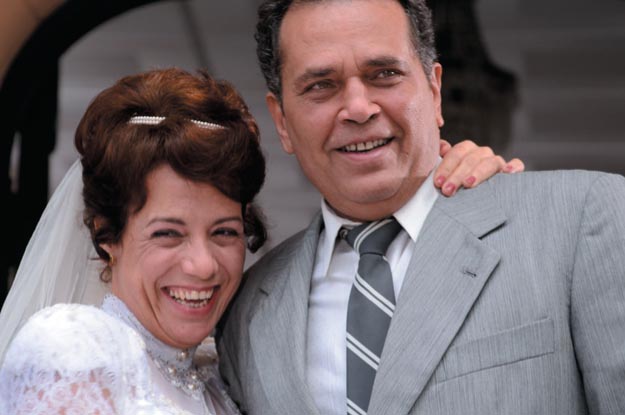One warm Havana afternoon, Rosa Elena checks up on a transgender friend, Sissy, who is suffering from the complications of a black-market breast augmentation. Rosa’s husband, Ernesto, expresses his disapproval of Sissy, and she pleads with him to understand and sympathize with transgender people—a plea that is secretly for her as well. Later, Ernesto will discover that before they met, Rosa Elena herself transitioned from male to female.
This scene from Vestido de Novia, by Cuban director Marilyn Solaya, illustrates a pervasive theme of love and acceptance tempered by gender-based discrimination. Rosa Elena’s past identity is uncovered when her boss digs through her medical records, catalyzing a reaction that unearths the underbelly of Cuba’s machista society, in which transgender lifestyles are deemed criminal.
The film’s double-edged title translates as both “wedding dress” and “[he is] dressed as a bride,” reflecting the many combinations of identity, love and gender. In a pivotal scene after Ernesto has discovered her past, Rosa Elena stands by her decision to live authentically. “I need to be me,” she tells Ernesto. “With my problems, with my flaws, but me.”
Solaya was inspired to make Vestido de Novia by the once contentious and now iconic gay film, Fresa y Chocolate, which she says changed her life. A friendship with Mari Sussel, the first Cuban to legally have a sex change, provided further inspiration for Vestido de Novia.
Despite its often uncomfortable portrait of Cuba, Vestido de Novia was a national hit, winning the Popularity Award at Havana’s International Festival of New Latin American Cinema in December 2014. More recently, Isabel Santos received the award for best actress at the Havana Film Festival in New York in April 2015 for her portrayal of Sissy. Vestido de Novia comes on the heels of several gender-themed films launched from Cuba, including Fatima, o el Parque de la Fraternidad, Venecia and La Partida. These films reflect a recent wave of progressive reforms regarding the rights of the LGBTQ community, including a free and formalized process for sex changes, and an increasingly open environment for LGBTQ, primarily led by Raúl Castro’s daughter, Mariela. As Luis Alberto Garcia, who portrays Ernesto, eloquently summarized, “This movie is primarily about love and loving one another.” Ten years in the making, Vestido de Novia is Marilyn Solaya’s first feature-length film.





